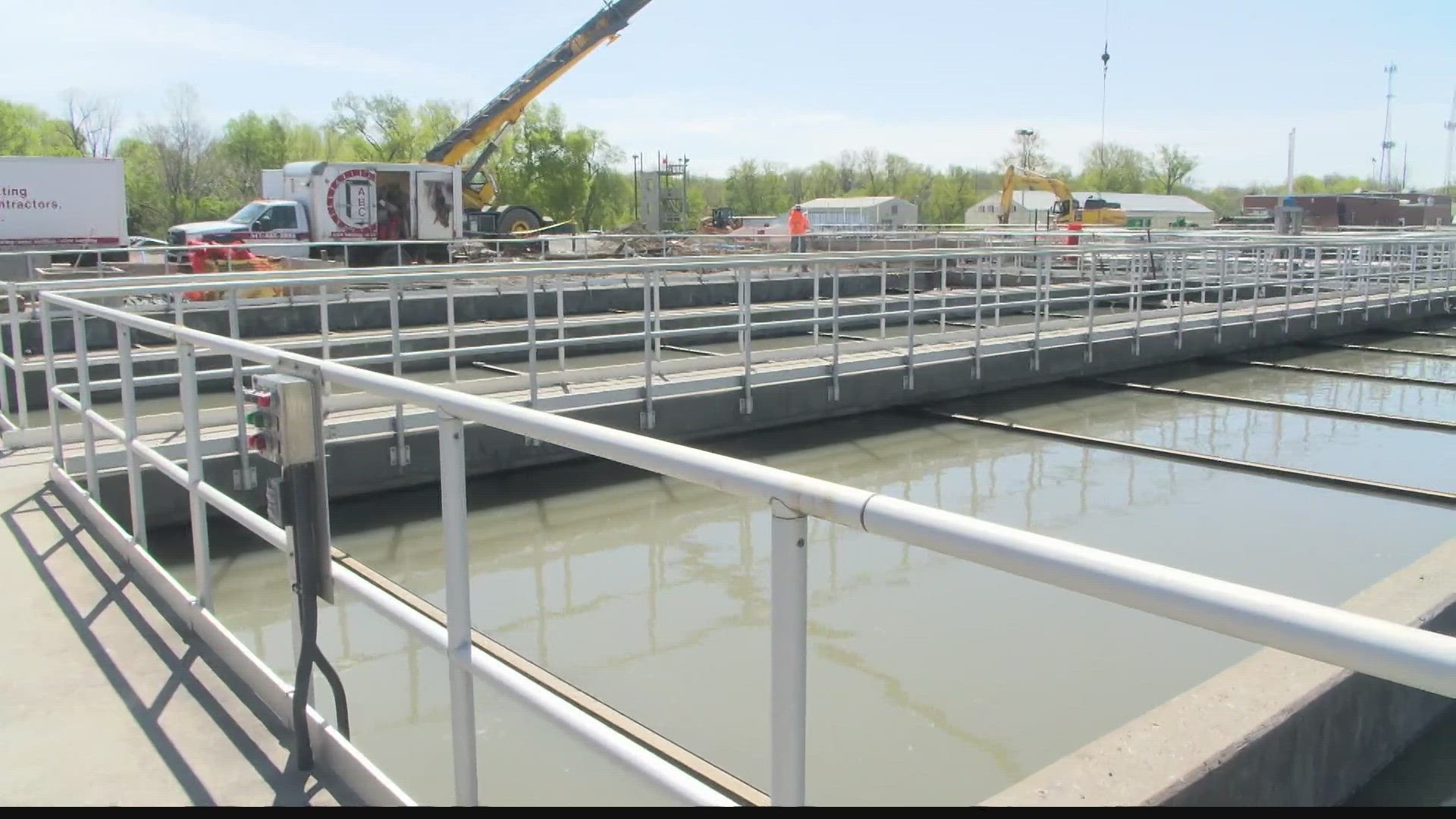CARMEL, Ind. — Carmel began testing wastewater for the virus that causes COVID-19 in May, hoping to build a reliable early warning system ahead of any spikes in cases.
Wastewater is one of the places where the COVID-19 virus exists, because traces of SARS-Cov2 have been found in human waste. Testing wastewater can be a strong indicator of how many people within a community have the virus that causes COVID-19, regardless of whether they have symptoms or have been tested.
“It doesn’t tell us how many people have COVID," said Mayor Jim Brainard. "What it does it tell us the amount of the virus that’s in our waste stream doubled or cut or went up by 10% or went down by 10%.”
But in order for it to work, for epidemiological testing to work, the lab the city is using to test wastewater samples has to provide a quick turnaround of the results. It was an issue 13News observed with the first lab, Biobot, which took more than two weeks to provide results.
“It really was early November when we got the kinks worked out,” said Brainard.
Carmel said they now test the wastewater every two weeks.
Back in May, Brainard told 13News that this was the best way to assess the trends of the pandemic in Carmel, since they are not able to test every resident every two weeks.
"We have worked with three companies on the testing, Pace Analytical, Source Molecular, and Bibot," said John Duffy, Carmel's utility director. "The total dollar amount paid to date is $12,927. We have been reimbursed $10,397 through the CARES Act to date."
At the moment, Brainard said Carmel saw “a slight decline” on December 9. But that doesn’t mean that the city is in the clear.
“They had two ICU beds available this morning,” said Brainard, about both of the hospital intensive care units in the city.
The rate of recovery for COVID-19 is difficult to quantify because we don’t know the number of people who are asymptomatic. Access to healthcare is another variable. A recent study published by the American Journal of Preventative Medicine said close to 17% of recovered patients could still carry the virus.
But it’s not just about COVID-19, even though at present, the COVID-19 mortality rate “is thought to be substantially higher (possibly 10 times or more) than that of most strains of the flu,” according to Johns Hopkins University.
Another area of concern during this pandemic is the threat high community spread poses to the capacity of our healthcare system to care for all people, with or without COVID-19.
“That’s the biggest problem,” said Brainard. “That’s why we’re inoculating healthcare workers first."
When it comes to capacity, “there are people with heart attacks and strokes who may need those beds that may be available,” said Brainard. It is a realistic concern, considering trauma cases have been surging in Indianapolis.
Brainard said more intensive care units can always be created.
“We have surgery centers we can turn into hospitals in the area,” said Brainard.
But converting those surgery centers would likely have some impact on non-COVID-19 patients. Staffing ICU units and hospitals is another issue.
“If the people working with these COVID-19 patients every day get sick and have to quarantine or have to go to the hospitals themselves, we’re not going to be able to staff the hospitals. That’s the issue,” said Brainard.
Health officials are hoping everyone will heed the warnings heading into the holiday season and not celebrate with family or friends with whom they do not currently reside. If they don't, Carmel officials say their early detection system will help them alert officials of an upcoming spike in cases.

